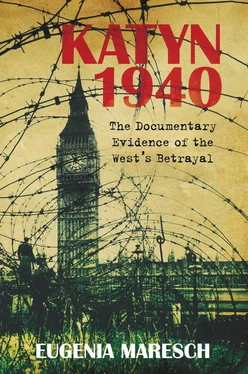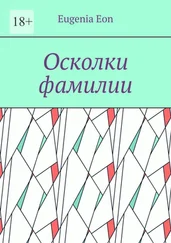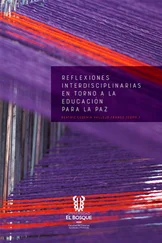My Lords, it is a curious coincidence of Parliamentary Orders that two consecutive matters of business should each refer to countries, which are alleged to be in the unfortunate position of being oppressed. With the indulgence of the House, I would say that having heard the discussion on the previous Bill I am reminded that I happen to be among the few in this House who actually sat in another place with the Irish, and tonight I heard the familiar talk of the ‘oppression’ by Britain of another country. Perhaps I might tell the House with regard to my Motion that the first time I visited Poland was when she was under the oppression of a foreign country, as the Congress of Poland was still under the subjection of Russia.
To turn to my Question, it has of course no Party partisan aspect. In that way, it is the more pleasing to put forward. I seek to report a gap in history, in the hope that there might be put in motion an exploration through some recognised international authority, which will correct the omission…
There has been a complete conspiracy of silence. There is a blank in history as to the authorship of this odious crime. There has been much talk in other circles of our obligation, the British obligation for the respect of international morality. There are other concurrent contemporary topics. I feel this is one, which justifies ourselves and the other Allies examining our consciences.
If I may be pardoned for striking a personal note. I speak on this matter because between the wars I visited the then Polish Independent Republic four or five times a year and travelled widely. I knew at that time a good deal about Poland and I was astonished, as all noble Lords would have been had they been there, at the achievements of Poland in the integration in a short time of the currency, weights and measures and legal system. Those three systems were merged into one as a result of the fusing together of the areas occupied by Russia, Austria and Germany.
A similar Motion to this one, with over 180 signatures to it, is down for debate in another place. I understand that steps are being taken to put this matter on the agenda of the United Nations Human Rights Committee, or before the General Assembly of the United Nations, which next meets in September. It will be thought by many: why raise this subject now so long after its occurrence? My Lords, what are the thoughts of the relatives of those murdered men and all the other Poles who died in the Allied cause in the last war? No indemnification was ever received by any of them. Now the relatives of those living in our country, ageing, many in dire poverty, believe that their feelings would receive some balm if they could only be assured as to what has happened and what was the fate of these people. Many of them are living with us in an alien country without normal contact with their own people…
I would urge that the Minister in reply not only offers sympathy, but also the prospect of some action of an effective character. I beg to ask the Question.
In the absence of an accredited spokesman Peter, Marquis of Lothian, the Minister of State for Health and Social Services Lord Aberdare, was asked to take the questions and hold a debate on Katyn in the House of Lords, on 17 June 1971.
A key brief from Sir Thomas Brimelow, Parliamentary Under Secretary of State, was prepared for Lord Aberdare – to resist the parliamentary pressure to allow a fresh enquiry, which would pin the blame on the Soviets. He admitted that personally, he believed that this was where the blame lies, but the British government had a lot to lose by becoming involved in an international wrangle. He did not think it would succeed, since no co-operation from the Soviets or the Polish government would be forthcoming. The whole subject was horrible to him and the best course was to ‘let the dead bury the dead’. Sir Thomas knew very well the difference between a letter and a statement in Parliament, which, once recorded in Hansard, would cause a fierce reaction from the Polish (Warsaw) and Soviet governments. He advised accordingly: [8] TNA FCO 28/1476 ENP 10/1, note by Sir Thomas Brimelow for Lord Aberdare intended as a reply to Lord St. Oswald’s question about Katyn in the House of Lords, 6 July 1971.
It is true that both Houses of Parliament would like HMG to attribute responsibility for the Katyn massacres to the Soviet Government. But I do not think that it would be in the interest of HMG to make any statement in the House, which might be held to have this implication. It is a controversy in which we have nothing to gain, but in which our relations with the Soviet and Polish Governments could be harmed. No one expects HMG as a Government to act as an arbiter on historical debates in general, though individual members of the Government may hold personal views on such debates. This is a subject best left to historical researches and personal conclusions of private individuals. The Noble Lord [Lord Barnby] is fully justified in pointing out that at the time of the Katyn murders, Poland was an active, loyal and valued ally of this country; but it does not in 1971 give to HMG a ‘locus standi’ for calling for a further investigation into this crime.
Lord Aberdare followed the FCO briefs and stood his ground, but soon realised that the debate had not been handled satisfactorily as complaints were coming in thick and fast to the office, demanding satisfaction from the Government – or at least an expression of their view.
Sir Alec Douglas Home and EE&SD Brief
An Early Day Motion on Katyn was going to be put before the House of Commons on 12 July 1971, by Airey Neave. He was instrumental in persuading 193 members of the House of Commons to sign a petition in support of the Motion. Extremely dissatisfied with futile debate in the House of Lords, where the ‘old wounds’ mantra returned, Neave reacted angrily – ‘Whose wounds are these?’ It was imperative for him and Lord St Oswald to see Secretary of State Sir Alec Douglas-Home. Neave was persistent in arguing that this most atrocious crime committed against PoWs, was a case worthy of bringing before the Human Rights Conference in Vienna. [9] NA FCO 28/1945, minutes of the meeting taken by J.A.N. Graham, Private Secretary of Sir Alec, between Airey Neave MP, Lord St. Oswald and Sir Alec Douglas-Home, typed on 19 July 1971, marked confidential for Mr Weston (EE&S Department), copies sent to Sir Thomas Brimelow and David Logan, private secretary to PUS.
A meeting was arranged for 19 July 1971, and John P. Weston of the East European and Soviet Department offered to prepare a brief. It consisted of carefully selected comments and arguments as expressed by senior officials of the Foreign Office over a number of years. Most is background history, which need not be repeated here, only points regarding ‘HMG attitudes’ and ‘defensive arguments’ as underlined by Douglas-Home are highlighted. [10] TNA FCO 28/1476 ENP 10/1 Part A, brief prepared by the EE&SD of the FCO for Sir Alec Douglas- Home’s meeting with Lord St Oswald and Airey Neave on 19 July 1971.
We welcome the chance to speak frankly about HMG’s attitude towards Katyn.
It is true that there has been a working assumption in the Foreign Office for many years that the Russians were responsible for Katyn. But that does not mean that HMG as a Government should now make a public pronouncement as to where the guilt lies. There are nevertheless certain constraints, which make it difficult for HMG to avoid comment altogether on this subject, if we are to appear inconsistent or disingenuous.
HMG cannot be expected to act as an arbiter of historical debates. It may be true that both Houses of Parliament would like HMG to attribute responsibility for the Katyn massacre to the Soviet Government. But it is difficult to see that it would be in the interest of HMG to make any statement which might be held to have this implication. No one expects HMG to act as an arbiter on historical debates in general, though individual members of the Government may hold personal views on such debates; the Department do not consider that HMG should be expected to depart from this principle in the case of Katyn.
Читать дальше












